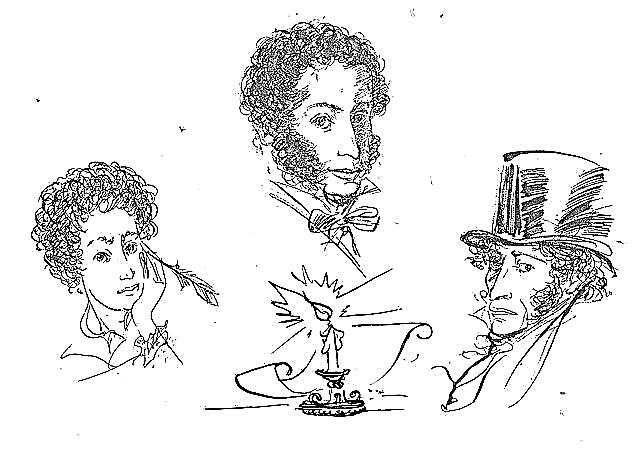Introduction
All works, from simple to complex, can be arranged in the following order:
- paper handling;
- work with materials;
- work with mechanisms (machines);
- work with people.
I think no one will argue that the work of managers is the most difficult. Here are just some of the questions that arise daily in the process of managing people:
- What authority can be delegated?
- How much time should be devoted to setting the problem?
- What can you entrust an employee to do on their own, and what needs to be controlled?
- Do all subordinates need to be “combed under one comb”, or for each “to search for his own key”?
Probably, none of these questions can be answered unequivocally. Therefore, management is still not a pure science. An element of art in it plays an equally important role.
Most managers lack involvement in the management process. And this is not surprising. Who are they, today's managers? Mostly former specialists promoted to senior positions. What are such managers best at? Perform the usual work in your professional field.
A very characteristic situation is when the manager does the most difficult work for his subordinates and does not have enough time for management. The task setting is brief and deeply thought out, the organization of work and the interaction of subordinates the manager is engaged from time to time, regular monitoring is not carried out. Such management is called "abstract". Its essence is to minimize the operational intervention of the leader in the work of subordinates.
At the other extreme, there is too “tight” control, when the leader “does not give a sigh” to his subordinates. This management method is called micromanagement. Employees do not develop, their initiative is minimal: why do something original, if almost certainly the manager intervenes and makes his changes and often remains dissatisfied.
As usual, the truth is somewhere in between. Finding the right balance between the detachment and involvement of the manager in the management process is the subject of the book by Bruce Tulgan, the main idea of which is that there is not much management, as a rule, it is not enough.
Why are managers not involved?
To manage your subordinates means:
- to give orders;
- monitor performance;
- correct mistakes;
- encourage success.
Myth number 1 on empowerment: "People work best when they are left alone and allowed to manage themselves." Almost everyone works better if a more experienced employee helps them, gives advice and support.
Myth number 2 on impartiality: “Being impartial means treating everyone equally.” Treating everyone equally, regardless of employee behavior, is unfair. What is true justice? Do more for some people and less for others based on what they deserve from the results.
Myth number 3 about a good guy: "The only way to be strong is to act like a tyrant, and I want to be a good guy." Why do superiors behave like tyrants? They are negligent in their duties, do not know what is happening, do not discuss their work with subordinates, but they like to make important decisions. When a crisis occurs, they can use nothing but cry and punishment.
False "good guys" so avoid using their power that things can not go wrong. When this happens, they turn into tyrants.Real “good guys” do everything necessary for subordinates to work successfully, they constantly manage them.
Myth number 4 about difficult conversations: "Working abstractly is the best way to avoid confrontation with subordinates." If conversations with subordinates are rare, they often lead to conflicts. This is due to the fact that the conversation occurs only after the problem. By talking constantly, you will avoid confrontation.
Myth number 5 about bureaucracy: “Managers are prevented from being strong by external factors: bureaucracy, corporate culture, company management, limited resources.” You do not need anyone’s permission to conduct individual conversations with their subordinates more often about their work, clearly articulate expectations, clarify goals, rules, deadlines and criteria for evaluating assignments.
Myth number 6 about a born leader: "I do not have the talent of a manager." Understand leadership as completely “down to earth,” but nonetheless important aspects: providing guidance and guidance, holding people accountable, correcting mistakes, and rewarding for success.
Myth number 7 about time: "There is not enough time to manage people." Managers who do not want to spend time on management are still forced to do this. Only they are engaged in managing people in situations when problems have accumulated, and their solution is fraught with conflicts. Instead, control people constantly, then even small problems will not accumulate.
Managing people in the real world is very difficult, and no easy solutions exist.
Most people get the position of boss not because they know how to manage people well, but because they do a good job.
The main factor affecting labor productivity, morale and staff stability is the relationship of employees with their immediate boss.
What do subordinates expect from their leader? Poor workers look for a boss who manages without delving into matters and tries to evaluate everyone equally. They need a boss who does not know who, what, why, when, and how, does not pay much attention to unsatisfactory labor results. Such employees want to have a boss who does not tell them what and how to do, and does not formulate clear goals. They want to be left alone, they want to hide and get the same salary as everyone else, no matter how bad they work. These employees are most beneficial in non-management. They are attracted to ineffective managers ...
Workers who know how to work with high productivity are looking for a strong boss who is involved in the work process. They need a boss who will make it clear that they and their work are important, clearly articulate expectations, teach them the best methods, warn about pitfalls, help solve small problems before they turn into large ones, and encourage them to do good and / or overtime work . What about the average majority of workers between good and bad? You will receive from them what you invest in them.
Get used to driving every day
Many superiors only manage when it is no longer possible to avoid this; as a rule, this is connected with the resolution of a serious problem. If there is no “special case”, there is no control.
The first person you must manage every day is yourself. Allocate one hour to management every day. Meet with a subordinate tête-à-tête. Talk about your expectations, ask about work, evaluate results, give advice, and they will have nowhere to hide. If you arrange a meeting, weak subordinates will try to sit out in a corner ...
Manage your employees every day. If there are many subordinates, a management hierarchy is needed. Introduce and manage junior managers. Pay attention to developing the leadership skills of these managers.
What should you talk about? About work.Get ready for meetings. Let daily management become a habit.
Learn to speak as a mentor
Speak, talk, talk about work. Do not talk about sports, weather, entertainment. Focus on what your subordinates are doing right now.
You don’t need to shout “Come on, come on!”. Do not wait for problems to mentor. Get extraordinary work from ordinary people.
Work with each person individually
Determine which management practices work best for each employee. Use a leadership style that is appropriate for one of the following situations.
- What is the person I work with?
- Why do I need to manage this person?
- What should I talk to him about?
- How should I talk to subordinates?
- Where should I talk with staff?
- When should I speak with my subordinates?
Leader's landscape: make a table where the column names vertically - what? as? Where? when? - and horizontally full name of employees.
Turn Responsibility into a Process
Associate the consequences of the actions of subordinates with an assessment of the quality of their work. Learn to overcome the following difficulties.
- I'm waiting for someone or something.
- Other work responsibilities interfere with me.
- For too long, I took mediocre work for granted.
- I am a new manager or new to the team.
- Some people I have to manage are my friends.
- Some employees are not directly subordinate to me, but I still have to manage them.
- I manage people who work in areas in which I do not have the necessary knowledge or experience.
Make responsibility real.
Tell people what and how to do.
Without clearly defined expectations, responsibility does not make sense. Do not feel uncomfortable due to the fact that priorities often change. If you focus on the task, then it will be completed.
Be obsessed with standard operating procedures. The best way to implement best practices is to turn it into standard work procedures. Teach standard operating procedures.
Remind, remind, remind! ... Each task has parameters: describe them so that employees understand what exactly is expected of them. Delegation is the true empowerment
Constantly monitor employee productivity
The preparation of an employee report as part of the annual certification should be based on continuous documentation of his work. Keep very detailed notes. Monitor the quality of work by observing specific actions. Do not calm down by measuring what is easy to measure. Strive to measure what is important to measure performance and quality. Document employee productivity.
Create your own simple process that you can follow (notepad, file). Keep notes so that they can be shown to both the subordinate and the management or human resources department. Show employees what you are recording. If you really closely monitor employee productivity, it is unlikely that they will fail.
Solve small problems before they become big
Confrontations are the result of a belated solution to the problem. Solve one small work problem at a time. To avoid conflict between employees, focus on processes, not personalities. Problems with low productivity have three roots: ability, skills, desire.
A difficult conversation will become easier if you:
- make it clear that the meeting is about discussing a problem;
- Report that lack of progress in performance is unacceptable.
- Imagine the facts that you previously documented;
- state the list of actions that you expect from the employee;
- make it clear that the subordinate will face negative consequences if the problem with poor performance is not resolved.
Dismiss stubborn and poorly performing employees. Weigh whether to give them one last chance or not. If you actively solve problems as soon as they arise, then perhaps you will never have to fire anyone.
Do more for some people and less for others
Explain to people why you give one more than others - this is where true justice lies. Use authority to differentiate employees. In exchange for fulfilling their requests, put forward your wishes.
Get started today
Consider the culture of your place of work. Even if you look like a black sheep in the role of an involved manager, do not back down. Get ready:
- set aside an hour a day for the management involved;
- learn to talk like a mentor;
- create a managerial landscape;
- schedule meetings;
- Prepare a performance monitoring system.
Announce your plans. Talk to your boss first, and then to your team. It remains only to start managing ...












